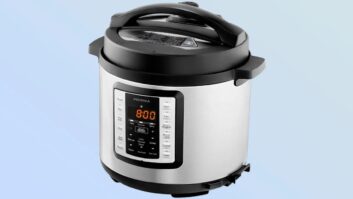Minneapolis — Best Buy will work toward reducing greenhouse gas emissions from its stores, distribution centers, trucks and headquarters by 8 percent over the next four years.
Steps to reach that goal include:
· adding skylights and upgraded high-efficiency lighting and heating, ventilation and air conditioning (HVAC) systems in all stores and operations, and incorporating them in new stores;
· implementing a no-idling policy nationwide for its fleet;
· upgrading and networking the company’s centralized energy management system to better track energy spikes across stores and operations; and
· testing renewable energy sources including solar panels on select stores.
“We’re proud of the efforts we’ve made over the past decade to decrease our energy use,” said Best Buy president/COO Brian Dunn. “This commitment to reduce our emissions signals our willingness to invest in even more efficient operations today, which will save money over time and help us to meet the expectations of our customers, employees, and shareholders.”
Best Buy intends to measure emissions on a per square footage basis to account for improvement while maintaining company growth initiatives. The company’s U.S. operations and stores emit approximately 62 pounds of greenhouse gasses annually per square foot. Electricity use represents 77 percent of the emissions, followed by HVAC at 13 percent, gas for fleet and service vehicles at 5 percent, and diesel for fleet vehicles and natural gas at 2 percent each.
Best Buy has also launched a new initiative called Greener Together, which was developed to help itself and consumers make smarter decisions about technology, and consume less energy in the process. Through the program, the retailer will help customers choose electronics and appliances “wisely” and use them more efficiently, plus find easy ways to recycle, reuse, or trade in products at the end of their life cycle. The company will also work with employees, manufacturers and partners to reduce its own carbon footprint, while providing consumers with an increasing number of energy efficient and recyclable options, from components to packaging.
Best Buy is also a member of Climate Leaders, an Environmental Protection Agency (EPA) industry-government partnership that works to develop comprehensive climate change strategies for business. The 226 corporate members of Climate Leaders represent more than 10 percent of the U.S. gross domestic product, and together have pledged greenhouse gas reductions equivalent to the emissions of nine million cars annu











